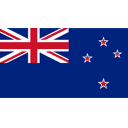Doing business with a Austria PEO/EOR
Austria law requires companies that have at least 5 employees working in-country must establish a work council. The size of the council depends on the number of employees working for the business. If an employer decides to terminate an employee, they are required to provide at least one week’s notice to the work council prior to the dismissal.
If an employee in Austria feels they are being treated unfairly by their employer, they have the ability to access free government and labor support to file a formal compliant. We suggest seeking professional advice when hiring employees by utilizing the services of an Austria PEO.
Why Use a Austria PEO?
The best practices for efficiently obtaining work visas and expanding your business internationally with legal compliance often involve a large amount of time and money being allocated for foreign companies to begin operating in the Austria. An Austria PEO provider can simplify this process for your business by managing the hiring and onboarding processes, leaving your company the time and resources to focus on your core business functions. Local employment specialists can also help foreign companies navigate the complexities of securing office rentals, managing employment contracts, and more.
How to Hire in Austria
We recommend putting a strong employment contract in place in Austria which should always state the salary and any compensation amounts in the Euro currency.
As is the case with every country a foreign company is interested in expanding into, employment contracts should define the following terms and conditions of employment:
- Compensation
- Benefits
- Length of Contract
- Termination Requirements and Severance
Every culture presents different hiring challenges and opportunities. Taking advantage of the recruitment channels with the highest potential is especially important for the process of hiring talented professionals in the Austria. This is where your company can likely benefit from working with a Austria PEO that is already well-versed in the local regulations and possesses in-country connections.
To maximize the potential of your company’s hiring in Austria, it can also be valuable to partner with a recruitment agency to simplify and expedite the process of hiring talented professionals in the country. Global PEO organizations will often possess an in-house recruitment agency that will aid the process of recruiting in Austria. There are a handful of benefits in using a recruitment agency to improve your overall hiring process, which include:
- Gaining access to recruitment experts who are familiar with the Austria markets and the best hiring practices.
- Working with a company that is designed to understand the specific goals of your business and that can create a recruitment search process that is designed to fulfill your exact needs.
- Taking advantage of the recruitment agency’s local legal expertise to ensure that your business is compliant with the local laws and regulations in regards to employment.
When you partner with a Austria PEO that also offers recruitment coverage, your company is able to receive ongoing support that includes the hiring and onboarding management, HR and payroll services, and more valuable resources in addition to those provided in the initial recruitment phase.
Below we have listed our recommendations for the 3 Best Austria PEOs and Employers of Record. These organizations all have outstanding reputations for being able to hire and manage talented professionals in Austria as well as ensure full compliance with local employment regulations.
Best Austria PEOs and Employers of Record
Horizons
With offices throughout Europe, Horizons is a top tier PEO/EOR in Austria as well as numerous other countries across the continent. Unlike many other Professional Employer Organizations (PEOs), it places high value on having local consultants in-house who truly understand the employment and business landscapes in which companies operate.
In doing so, Horizons is able to guide executives through the complex processes involved in setting up a business in Austria, as well as helping any foreign staff understand the business culture and etiquette.
Website: Horizons
Global PEO
Global PEO has continued to develop their organization in recent years and consistently provides superb global expansion guidance to businesses worldwide. The company’s cost-effective nature is a strong selling point for businesses expanding into Austria, and offers pricing rates that are competitive compared to industry norms. In addition to recruitment and hiring services, they’re also set up to take on a variety of duties based around entity setup, staffing, payroll, and a variety of administrative functions.
Website: GlobalPEO.com
Globalization Partners
GP is a simplified Austria PEO solution for many mid-market companies across the world. Their workforce support is available for over 170 countries, including in the Austria, and they provide localized insights and a centralized management style that is efficient for new companies who have relocated and are already working with local experts in the Austria.
Website: Globalization-partners.com

Request a Proposal
If your business is looking to expand your operations into Austria, GlobalizationPedia can help match you with the PEO that best fits your company’s objectives at the strongest value both financially and operationally. Fill out the form below and we’ll use our extensive database of strategic partnerships to provide you with a full breakdown of the best potential Austria PEO matches for your organization.
How useful was this post?
Click on a star to rate it!
Average rating 5 / 5. Vote count: 35
No votes so far! Be the first to rate this post.





































